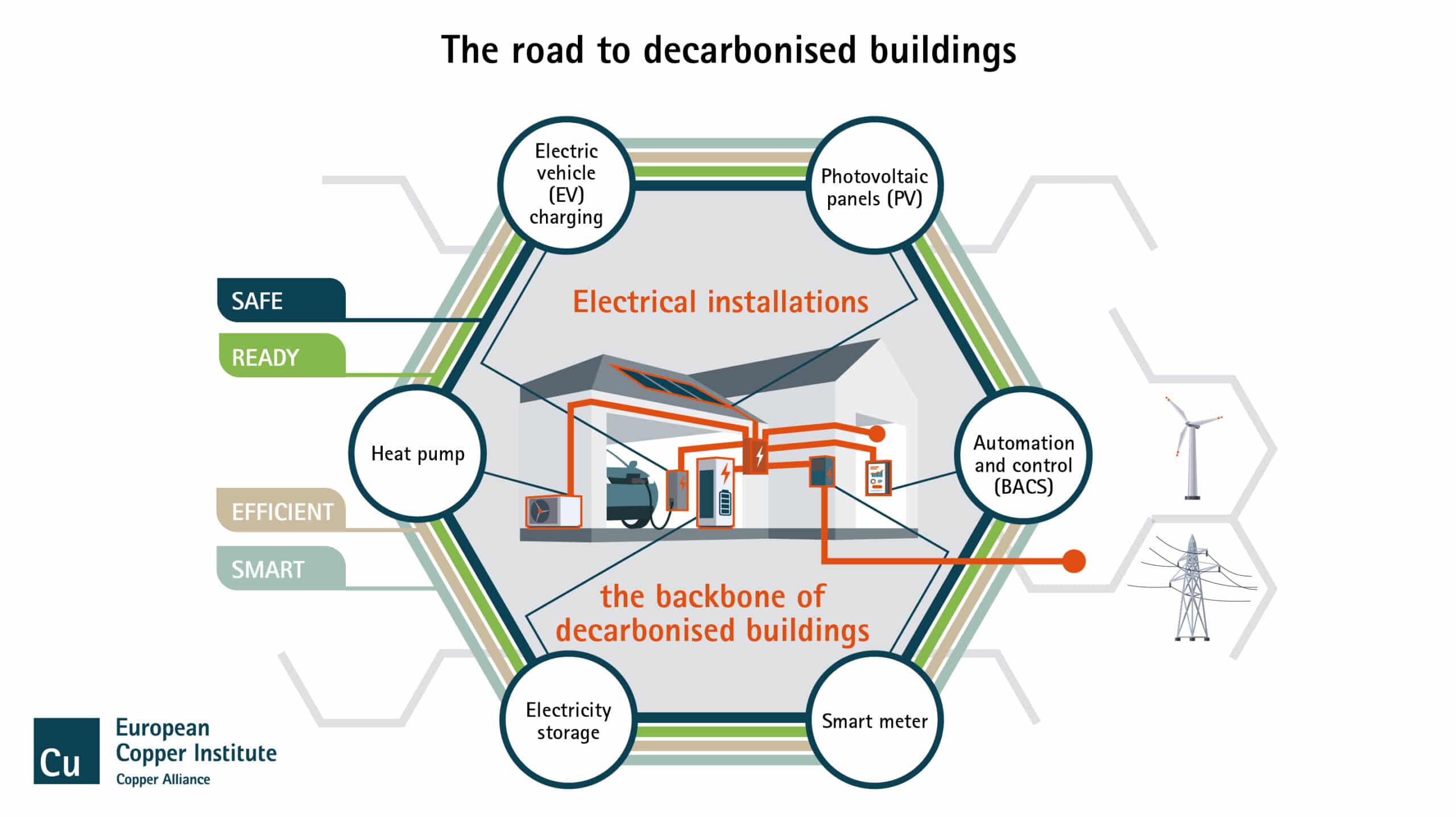Today, the European Commission proposed a recast of the Energy Performance of Buildings Directive (EPBD) to make it “fit for 55” and the European Parliament adopted a report on its current implementation. The European Copper Institute (ECI) welcomes the ambition to address the large untapped energy efficiency and decarbonisation potential in the building stock and to secure the contribution of buildings to EU’s carbon neutrality, energy efficiency and renewable energy objectives. Mainstreaming the Energy Efficiency First principle in the building sector is paramount, particularly with the current energy prices crisis which makes this revision very timely and crucial to sustainably reduce energy bills and alleviate energy poverty.
The introduction of Minimum Energy Performance Standards (MEPS), National Building Renovation Plan, Zero-Emission Buildings and improved e-mobility provisions are steppingstones for buildings decarbonisation. In order to fully deliver the potential and ensure zero-emission readiness of buildings, additional elements must be considered and alignment of the ambition must be confirmed:
- Electrical installations: Electrical installations are the backbone of zero-emission buildings but readily available infrastructure is only secured for EV charging points, while electrical installations should be fully ready for zero-emission heating, on-site renewable generation and storage. Following the European Parliament’s call to develop electrical inspections regimes, the EPBD revision must address electrical installations and make them safe, ready, efficient, and smart. See our infographic and proposals.
- Waste water heat recovery: Harvesting heat from shower drains in buildings could be a simple and cost-effective way to save at least 40 percent of wasted energy and related CO2 emissions of hot water demand, as confirmed by the study “Technical assistance services to assess the energy savings potentials at national and European level”[1]. The EPBD revision should ensure that heat recovery is considered in the optimisation of hot water systems. New recital 15 about system level performance is a step in the good direction See our infographic and proposal.
The introduction of Minimum Energy Performance Standards (MEPS) for the entire buildings stock is a welcomed effective tool to address persistent barriers to energy renovation, incentivise private investments, and unlock the innovation potential in the buildings sector. National building renovation plan will provide an improved framework to current Long Term Renovation Strategies, as requested by the Parliament. It will be essential to align these two tools with the 2030 and 2050 climate objectives, to avoid lock-in effect and to provide sufficient financial and technical support for consumers.
We welcome the introduction of Zero-Emission Buildings (ZEB) and of improved requirements supporting e-mobility via a “right-to-plug” and a focus on smart charging. It is also essential that all buildings are made ready for clean heating and transport, and on-site renewable generation and storage, which requires addressing readiness of electrical installations into tools such as Energy Performance Certificates and Renovation Passports.
Quentin de Hults, ECI’s Director for Green & Healthy Buildings stated: “the proposed EPBD recast is a good starting point to make buildings fit for 55, we will work with the Parliament and Council to ensure the right ambition level and address forgotten elements such as electrical installations”.
—
Sources
[1] Technical assistance services to assess the energy savings potentials at national and European level: Summary of EU results and Member state annex report

